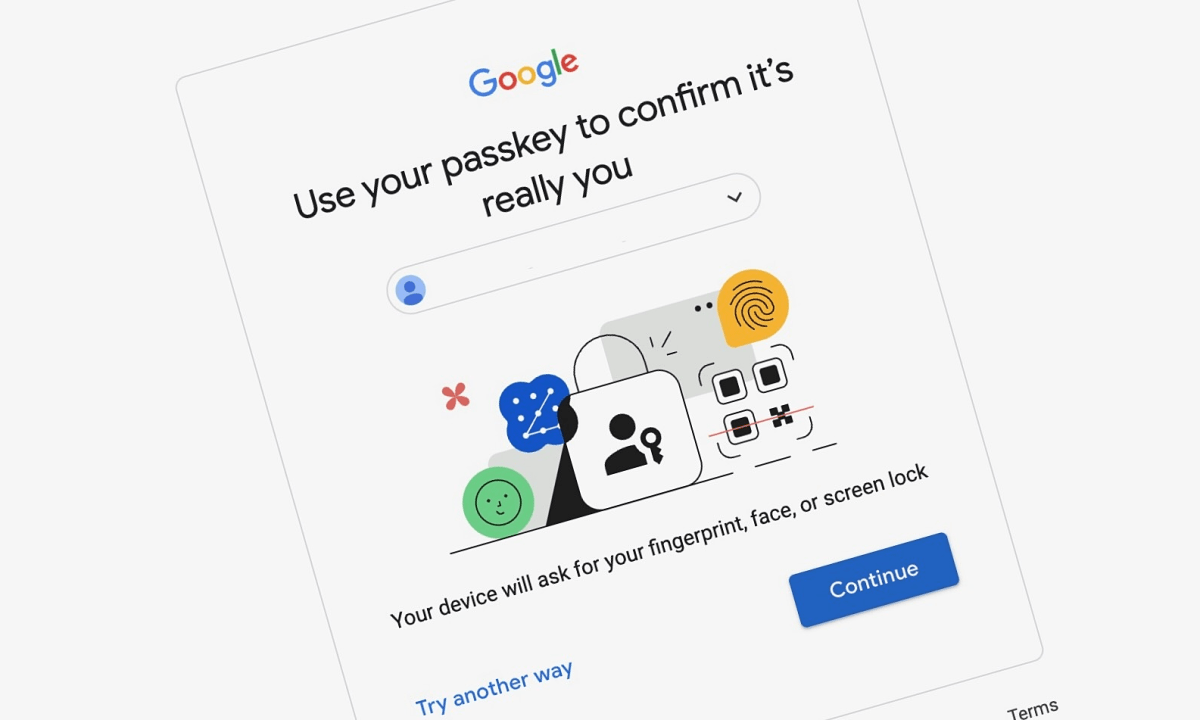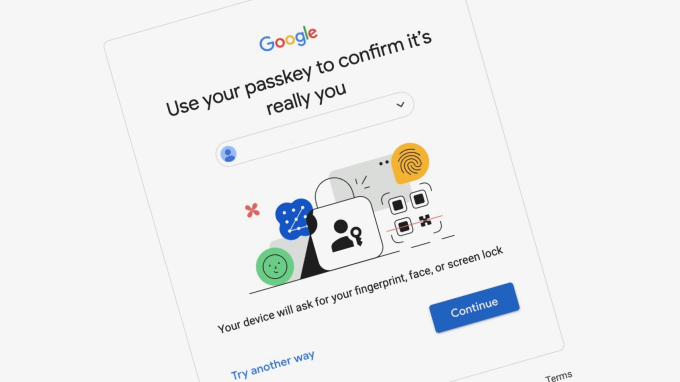
In a blog post on October 11, Google said the advantage of the key code login method is that it does not require users to remember the password, is faster to use and provides higher security. The company launched Google Passkey in May, but began mass deployment across services this month.
Passkey is a feature that allows users to log in using a unique device authentication method. Instead of creating a password on Google servers, users set up and log in via PIN, fingerprint scan or face on the device. Users can also receive notifications immediately when there is a strange login to limit data theft, as well as no need to remember complex passwords or two-layer authentication when logging in with Passkey.
“We’re encouraging users to migrate to Passkey. The ultimate goal is to make passwords obsolete,” Google said.

Login interface with Google key code. Photo: PCMag
Google Passkey will be used as the default login method on applications including YouTube, Search, Maps, as well as some apps like Uber and eBay. In addition, WhatsApp is also about to add this feature. Google will continue to support traditional passwords, but users can enable the “skip passwords when possible” option and switch to the new way of signing in.
The World Online Authentication Alliance (FIDO Alliance), an organization that sets common standards for passwords with members including the world’s leading technology companies, has promoted the use of encryption keys instead of real-time passwords. last time. Microsoft, Apple and Google are three of the companies responding.
Apple implemented the passcode option when it released iOS 16, allowing users to use this technology on certain apps like Apple Wallet. Before releasing Passkey, Google applied the passcode on Chrome and Android devices from October 2022.
To date, passwords are still a popular security method because of their convenience, but are considered outdated. Because they need to remember many characters, users often choose easy-to-remember numbers like “123456” or “password”. This is also a loophole for hackers to exploit.
During the seminar on Passwordless Authentication in Hanoi last July, Mr. Andrew Shikiar, CEO of FIDO Alliance, said that the new authentication trend is moving from “user-held information” such as passwords, OTPs to “information information only owned by the user”, for example biometric factors such as fingerprints, faces.
Bao Lam (according to CNN )

Leave a Reply
You must be logged in to post a comment.